Akedah – Must We Kill Isaac?
by Heber Longhurst
One of the most striking passages in the Hebrew Bible is the Akedah or the binding of Isaac by Abraham. The great mystery of human death will always produce strong emotional reactions. The presence of death makes the reality of our mortality undeniable. Death leaves a void in the lives of those left behind. However, death is even more shocking when it violates the natural order, such as the cases where death occurs at the hands of another human being or when the death of a child precedes the death of its parents.
The story of Abraham and Isaac wins and maintains space in our limited memories because the deep pain of a child dying before its parents and the striking idea of death at the hands of another is combined with the unthinkable idea of a father killing his “son whom he loves”. The conflict which this idea produces is exacerbated because Abraham is a model of a righteous patriarch and The Akedah occurred at the express command of The Benevolent God and Heavenly Father.
The attempted sacrifice of a child at the hand of his own father, is not only justified under the moral philosophy of divine command, but has actually been spiritualized among Christians as a powerful symbol of The Atonement where the Sublime Father kills his Perfect Son.
Among Jews and Muslims, however, where the investment in Atonement symbolism is absent there is a greater diversity of interpretations. Although the majority share the Christian view that God was testing Abraham’s loyalty and obedience, Rabbi Yosef Ibn Casi wrote that Abraham’s imagination led him to believe that God had commanded something so revolting, Rabbi Joseph H. Hertz pointed out that at that time period Child sacrifice was quite common among Semitic peoples and that in when considering the cultural and historical context what was astounding was that God would have interposed to prevent the sacrifice. Some Jewish commentators have viewed the commandment to sacrifice Isaac as a punishment for Abraham’s mistreatment of Ishmael. Radiolab did an excellent post titled “In Silence” which grasps the pathos not only of what is said in Genesis 22, but also what is not said. I recommend that all listen to the Radiolab Podcast.
In Islam, the Akedah (of Ishmael) is a symbol of submission to the will of Allah even though tremendous sacrifice might be required in order to withstand idolatry, where the submission of Ishmael to his father is what is highlighted. In Episode 9 of Dr. Sheldon Greaves’ podcast, “Discovering the Old Testament”, he points out that in Islam, Ishmael is actually pleased to have been chosen as the son to be sacrificed. There is little commentary regarding the conflict between the Akedah as a symbol of resistance to idolatry and the historical fact of child sacrifice being one of the most abhorrent elements of idolatry.
The Ethics of Child Sacrifice?
God commanding Abraham to commit prolicide is explained in Jewish, Muslim and Christian traditions under the moral philosophy of divine command where divine command is the view that morality is a function of God’s will. In other words, that whatever God commands is right and that the sum of human moral obligation is to obey God (Ecclesiastes 12:13).
The Genesis account of the Akedah and the three Abrahamic religions hold that Abraham was moral in binding Isaac, as he was commanded to do so by God. However, even under a divine command justification the suggestion of a justified filicide is disturbing. To begin, murder is condemned in the 10 commandments (Ex 20:13), and the sacrifice of children, which was surprisingly prevalent at that time period was condemned in at least these following passages: Leviticus 18:21; 20:1-8; Deuteronomy 12:31;18:10; 2 Kings 16:3; 17:17, 17:31; 21:6; 23:10; Jeremiah 7:31; 19:5; Ezekiel 20:31; Micah 6:7; 2 Chronicles 28:3; 33:6.
Of course, divine command is also used to justify Nephi’s killing of Laban and Joshua’s warfare in Canaan. So there is obviously a scriptural precedent for sacred violence. When discussing divine command it is worth pointing out the dilemma posed in Plato’s Euthyphro. In this dialogue it is a son, Euthyphro, who is accusing his father of impiety given than the father has murdered, and the son is being accused of impiety due to a lack of loyalty to his father. Socrates asks the fundamental question “Is good loved by the gods because it is good or is good good because it is loved by the gods?”. We could rephrase this question into: do morality, justice, truth and piety emanate from God or are justice, truth, morality and righteousness somehow prior to God? Socrates claims that because the gods in their Greek pantheon were so contradictory, divine command would be too arbitrary and that justice, truth and morality had to be prior to divinity.
In LDS theology we also have a view of God who is obedient to prior laws. Alma 42:13 states that God would cease to be God if justice were destroyed. One of the LDS answers to the theodicy is that even though God loves His children he cannot violate their agency (or even though he could, he will not, because he could not without frustrating The Plan, either way it there are things prior to God’s omnipotence). In Spinoza’s “Ethics”, God’s omnipotence is not presented as God being able to do everything, but rather God being able to do every possible thing. In this case, logic, possibility and truth are prior to God. God cannot build a 4-sided triangle, not because of impotence on God’s part, but because, by definition triangles have 3 sides.
Imagine you are asked to participate in a jury regarding a parent who killed his/her own child in February of 2014. The only defense is that this parent honestly and sincerely believes that God ordered the child to be offered up as sacrifice. How would you vote?
I think it is safe to state that child sacrifice would fail the test according to more modern ethical guidelines such as deontology, utilitarianism or consequentialism. According to Kant’s deontology, for an action to be good it must be intrinsically good without regard to circumstances and it should be desirable to will that this action become a universal law. I would not will child sacrifice to become a universal law. In Jeremy Bentham’s writings on utilitarianism the most ethical actions are those that achieve the maximization of pleasure and the minimization of pain. Most people would argue that child sacrifice creates more pain than pleasure. In the various strands of consequentialist philosophies the consequences of one’s conduct are the ultimate basis for judging whether the conduct is ethical. I would hate to imagine the consequences of wide-spread child sacrifice.
No study of The Akedah would be complete without exploring Kierkegaard’s “Fear and Trembling”. Kierkegaard describes Abraham as a patriarch who was presented with a dilemma between his reason and his faith. According to Kierkegaard Abraham was fully aware that child sacrifice was unethical and if he were to discard faith under no circumstances would he have entertained the idea of binding his own son. However, through faith Abraham also believed that he has received a contradictory instruction. According to Kierkegaard, disobedience to this divine message would have created in Abraham a state of fear and trembling. Kierkegaard proposed that Abraham temporarily suspended his love for his son in order to obey his love for God. Abraham did it for God, but he also did it so that he as an individual could prove something to God. In this sense the individual’s obligation to Deity became more important than his obligation to humanity.
But don’t the scriptures also say that “as ye have done it unto one of the least of these my brethren ye have done it unto me”? Isn’t our love for God manifest through our love for humanity? Immanuel Kant used the story of Abraham and Isaac to drive home his opinion that God cannot flout moral law. “There are certain cases in which man can be convinced that it cannot be God whose voice he has heard. When the voice commands him to do something what is opposed to the moral law he should count it as a deception.” As Allen pointed out in the Engaging Gospel Doctrine podcast, what makes this account so gripping is that the parts of the story which we would like to reject (the instruction came from God) cannot really be rejected if you follow the scriptural text closely.
As mentioned earlier, most Christian, Jewish and Islamic believers would agree with Kierkegaard in that Abraham’s obligation to God was superior to other obligations. However, if these same believers were to be faced with an opportunity to influence a decision in a modern court of law with a 2014 prolicide as a defendant, I wouldn’t be surprised if we were to apply more universally applicable principles of justice and ethics.
If I were to feel inspired to kill any of my three children, believe me I would doubt the inspiration more than I would doubt my doubts, and I would have no compunctions in allowing more rational/universal ethical principles to squelch this impulse.
Moral / Ethical Implications of the Akedah
The Akedah brings into stark relief profound theological questions of God’s goodness. We should honestly question whether we should follow a divine instruction that contradicts all concepts of ethics and dignity. And we should also question whether a benevolent deity would even give such an instruction.
As one of the participants pointed out on Episode 211 of the Mormon Matters Podcast, one theological interpretation is that even though the narrative claims that it was indeed God who provided the instruction, He did not allow Abraham to follow through with the instructed bloodshed. In other words, that God will always be there for us. As he left for Mount Moriah, Abraham even stated that they would both be returning (Gen 22:5). This strengthens the impression that Abraham never expected to be actually required to kill his son and places both Abraham and God in a more favorable light. I do have to wonder, however, what Jephthah and his daughter would think of that interpretation (Judges 11).
Would a kind and benevolent God require that Jephthah follow through with his oath to the death of his innocent daughter and ask Abraham to kill the child of the covenant? Should humanity be required to commit barbarous acts if commanded by God? Was Kierkegaard correct in assuming that because Abraham was more elevated than the rest of us; what would otherwise have been a repugnant act was instead for Abraham obedience to a higher moral imperative? Was Abraham deceived in thinking that the instruction came from God? Why didn’t Abraham push back in the Akedah as he did for Sodom and Gomorrah? How do we reconcile the biblical narrative of the binding of Isaac with the idea of a kind and benevolent heavenly father?
The Akedah as an Etiology?
On January 27th, 2014, Mormon Matters produced an excellent podcast on the Abraham cycle with biblical experts, David Bokovoy, Tom Roberts and Brian Hauglid. This is a fascinating podcast and one that I highly recommend. The presenters are all smarter and better read than yours truly. I was disappointed to learn that my favorite theological, symbolic and psychological interpretation, which is the Akedah as an etiology of why child sacrifice is forbidden is unfortunately not backed up by documentation. Genesis chapter 22 lacks any text suggesting that this is an etiology and the first time my favorite interpretation was published was several centuries after Christ. However, given that interpretation can be empowering I will detail it here.
Abraham 1:7 states that Abraham was almost sacrificed by the priest of Elkenah. There are many apocryphal and extra-biblical sources which corroborate our Pearl of Great Price in suggesting that Abraham was close to being offered up as a child sacrifice. A few go so far as to suggest that Abraham’s own father could have been the perpetuator.
There are many evidences of child sacrifice being alarmingly commonplace in the ancient world. Plutarch, Tertullian, Orosius and Diodorus Siculus mention child sacrifices in Carthage. Greek, Roman and Israelite writers refer to child sacrifice in Phoenicia. While some archeologists dispute whether there is sufficient evidence to support the extent of child sacrifice described in Mediterranean ancient texts, there is ample archeological evidence of child sacrifice in Aztec, Incan and Moche cultures. Human sacrifice in general and child sacrifice in particular are probably the most repugnant aspects of ancient pagan idolatries. This was the zeitgeist into which Abraham was born.
The story of Jephthah and his daughter demonstrates the extent to which ritual prolicide was accepted in biblical times. In Judges 11:31, Jephthah promises to offer The Lord a burnt offering if God helps him conquer the Ammonites. In Judges 11:39 Jephthah follows through with his oath by killing his daughter. There is no evidence of this particular sacrifice being condemned.
In contrast, the child sacrifices performed by Manasseh in 2 Kings 21:1-16 were most definitely condemned. As mentioned earlier child sacrifice was also condemned in the following passages Leviticus 18:21; 20:1-8; Deuteronomy 12:31;18:10; 2 Kings 16:3; 17:17, 17:31; 23:10; Jeremiah 7:31; 19:5; Ezekiel 20:31; Micah 6:7; 2 Chronicles 28:3; 33:6.
Although Genesis 22 does not suggest that the story of Abraham and Isaac was an etiology, Father Abraham was one of the main proponents of monotheism and challenged the ideas of his time. Animal sacrifice is barbaric by modern standards; however, it was a considerable improvement over the human and child sacrifice of the zeitgeist and ortgeist into which Abraham was born. In the New Testament, when animal sacrifice was replaced with a broken heart and a contrite spirit, in order for human understanding of justice to be fulfilled we somehow needed this to be accompanied with the Deicide of the Atonement. In her excellent essay “Child Abuse and the Sacrifice of Isaac” Tresa Edmunds used the Akedah as an example of how we can avoid perpetuating the abuse cycle into following generations. Some might take issue with the word “abuse”, given that in that cultural context it was an honor to be the child chosen to be offered as a sacrifice (hence the debate between Judaism and Islam over whether it was Isaac or Ishmael) and the ancient world did not understand abuse the way we do. However, I must agree with Dawkins in that Isaac most likely suffered some form of profound and lasting psychological trauma as a result of a near death at the hand of his own father.
While the ancient world did not share our modern understanding of child abuse, Tresa’s essay is an excellent example of using an otherwise rather disturbing story to find personal, emotional, symbolic and theological instruction of profound significance. Just as Abraham was strong enough at the last moment to stay his hand, to listen to the better angels of his nature and replace the child sacrifice with an animal sacrifice we can follow the example of Abraham not in blindly obeying societal pressures, or blindly following inherited family traditions but rather in following something which is more noble and true.
A podcast in which I participated which explores the idea of the Akedah as an etiology is the study notes section of the Engaging Gospel Doctrine podcast on the Abraham and Isaac story.
Obedience as an Act of Rebellion
I am NOT recommending that we simply disregard the traditional understanding of the Akedah (Romans 4, James 2:21-22) as Abraham teaches us important concepts about how obedience can often be difficult and require extreme sacrifices, and Isaac teaches us about the importance of trust. It is antiethical in scriptural studies to assign only one interpretation to the same symbol. The powerful spiritual gems come when one symbolic interpretations of multiple passages with multiple interpretations of the same passage with one’s own access to the divine through both faith and the intellect to evolve humanity’s understanding of morality, truth and the Divine.
If we had been more willing to rebel against what the recent “Race and the Priesthood” statement described as the “highly contentious racial culture” into which our church was restored in order to obey higher truths even though this would have involved the sacrifices and difficulties such as those faced by abolitionists, the underground railroad and the later activists of The Civil Rights Movement we could have been leaders in evolving The West’s understanding of Deity as expressed in 2 Nephi 26:33, Acts 10:34, Acts 17:26, Romans 2:11, Romans 10:12 and Galatians 3:28.
As the graffiti artist, Banksy, wrote “The greatest crimes in the world are not committed by people breaking the rules but by people following the rules. It’s people who follow orders that drop bombs and massacre villages”. Those who participated in the Mountain Meadow Massacre would have benefited by giving themselves permission to disobey human leaders in order to obey the commands of God. By disobeying the command to partake of the fruit of the Tree of Knowledge of Good and Evil, Eve obeyed the more important command which made the entire Plan of Salvation possible (2 Nephi 2:25). By disobeying the command to kill his son, Abraham obeyed a higher and holier commandment. Neither of these were examples of senseless disobedience, both of these required tremendous courage. In Jared Anderson’s Engaging Gospel Doctrine Podcast on the Abraham and Isaac Story (where I also participated), Maxine Hanks pointed out that we usually don’t discuss the role of the angel who saves Isaac from death. God, the more powerful figure commanded death, and Abraham was willing to listen to the angel, a lesser authority. When we are willing to listen to the still small voice we can also become angels to innocent victims.
Einstein was a great fan of Newton, but he enabled us to evolve in our understanding of the natural world by challenging Newtonian physics. Copernicus and Galileo did not undermine Ptolemy’s geocentrism lightly but they did so nonetheless.
If the US Founding Fathers had been captured before achieving their end they would not have received the honor of writing a new constitution, but rather they would have been sentenced and executed as traitors, in other words, as criminals. In Mexico, Don Miguel Hidalgo was sentenced as both a traitor and as a heretic and then was executed by The Inquisition. His crime? Obeying the higher principle of human freedom in disobedience to the monarchy. All Founding Fathers of all nations began as traitors, and according to the prior regime, the lowest of criminals.
Anyone who has evolved human understanding closer to a more perfect idea of truth or who has in any way created lasting change has at some point been accused of rebellion. Most of us cannot make a lasting impact on any zeitgeist. But we have all inherited family and cultural traditions which can be improved. We can all give the next generation a better understanding of a healthier way to interact with God, with society and with oneself. By doing so, we obey the injunctive to build The City of Enoch, but in so doing we will often be accused of rebellion. Sometimes obedience to the higher law requires sacrifice.

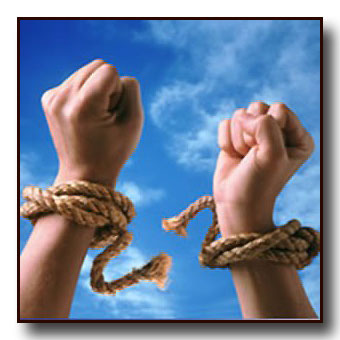
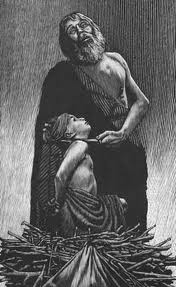

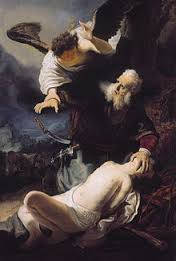
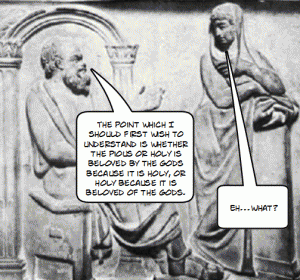



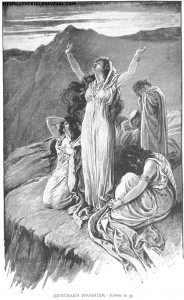

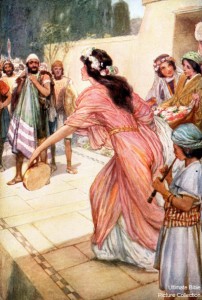
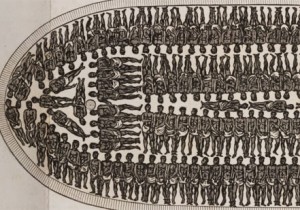
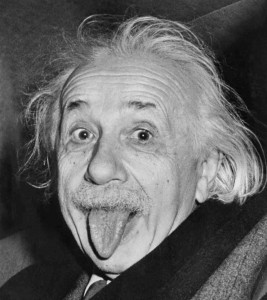
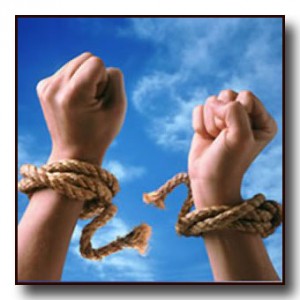



I have often felt this way as well. Thanks for sharing the insights. I wish the LDS faith could have instead been on the forefront of, for example, the American abolitionist movement. Unfortunately, due to a variety of factors, we didn’t.
Also, I appreciated the shout-out to Padre Hidalgo!
“We can all give the next generation a better understanding of a healthier way to interact with God, with society and with oneself. By doing so, we obey the injunctive to build The City of Enoch, but in so doing we will often be accused of rebellion. Sometimes obedience to the higher law requires sacrifice.”
Yes.
Thanks for the energy you’ve put into this story. It’s always been a hard one, for me, but that has caused me more to ignore it and take whatever explanation I last hear and like, than to seriously engage with it.
This is some amazing insight into this story. I’ve always struggled with this. I am torn between feeling relieved by the idea that Abraham was working within a cultural context (like the early church’s racism) and irritated that followers of God can’t DO BETTER (like the early church’s racism…). Either way, knowing more about that cultural context certainly helps me to frame the issue in a way that doesn’t nettle my conscious so much. I’d much rather choose to believe that it was not God who wanted this sacrifice. Thanks for this.
I want to have more time to think this one over. I am posting, so that I won’t lose it.
I don’t see a place where I can bookmark, and my favorites isn’t working.
Thank you. I read about half of it and was intrigued and had to stop and go do something else.
But I want to complete it.
I love the research and insight you’ve added to this. Wonderful job!
Thank you all for your comments. They mean a lot to me. I did put a lot into this (maybe it was too long, but there was a lot to cover).
Oh my, that Radiolab podcast. It’s a good thing no one walked into my office while that was playing. They may have happened upon a man in a fetal position crying.
Thank you for all your work on this subject.
Man in a fetal position crying probably isn’t the best career move. But it is a very appropriate reaction to that podcast. I shed several tears too. It is a powerful way to respect the pathos of the silence in Gen 22.
Very thought-provoking. Many thanks to you, Bro. Longhurst, for the time and effort it must have taken to assemble this.
Dear Heber,
Thank you for writing with discipline and courage about such a tricky item.
Indeed I was one of the people who had been in that state of fear and trembling, thank you very much for helping me.
Beyond your magnificent logical and ethical arguments, maybe I am more grateful about your bold way to speak about the solution. Thank you for your leadership.
On the other hand, you have teached me the appropriate way to be a rebel and the fact that it will be accompanied with sacrifice.
I am very proud about having a great leader in my job.
Religion and human kind need more “fearless” sportsman like you.
Enrique.